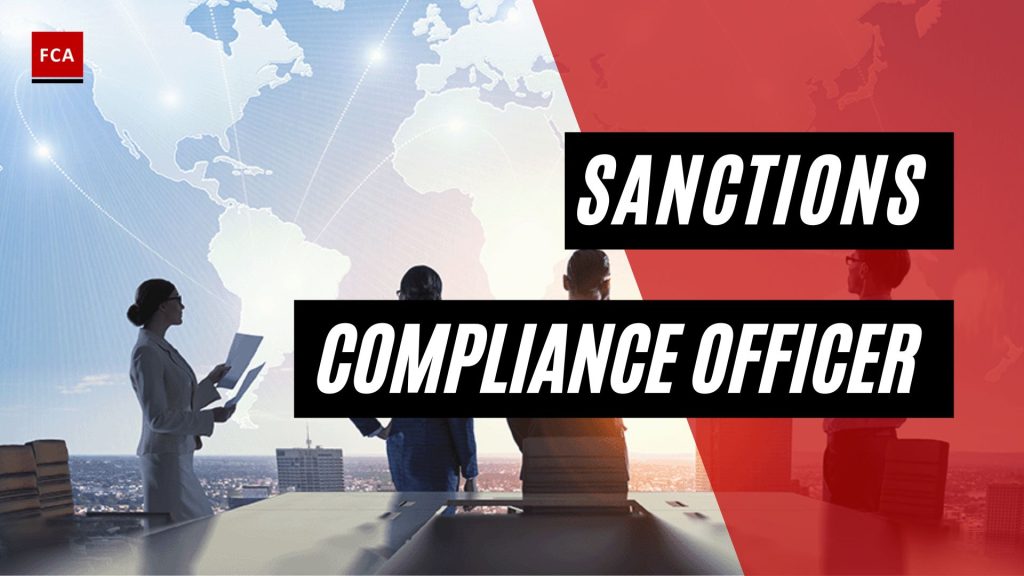The Sanctions Compliance Officer roles and responsibilities is to ensure that sanction policies and processes are implemented in the organization.
An entity organizes its compliance function in a manner that allows financial crime compliance risk to be managed effectively on an entity-wide basis. This takes into account the geographic diversity, target market, nature of operations, and complexity of business and operations. The larger the entity with a complex structure the larger will be the risk of occurrence of financial crime.

The Sanctions Compliance Officer
The compliance function is also responsible to perform the sanction screening and related activities, to ensure that sanctions risks are identified and managed. Sanction Compliance Officer, is a dedicated person to perform the sanctions compliance-related roles and responsibilities.
The diversified number and different types of customers naturally expose the entity to risks and non-compliance with applicable regulatory requirements, including sanction compliance laws or regulations. The management of sanction risks is of the same importance to both large and small organizations and they must be consistent with the overall compliance strategy, risk profile, and structure of the entity.
Where the organization has international operations, the Sanction Compliance Officer is deputed, at international locations, to assess and manage sanctions risks.
To increase efficiency, the Sanction Compliance Officer may collect information from other departments such as audits regarding financial crime incidences observed in a specific branch or department. The Sanction Compliance Officer either independently or in close coordination with the financial crime risk management team may conduct independent sanctions risk assessments of critical areas, where the likelihood of non-compliance is high.
The sanctions Compliance Officer serves as a subject matter expert and may provide advice to departments on sanctions-related regulations and issues. These departments may include, risk management, account opening of customers, transactions monitoring, product development, international trade, outsourcing, operations, etc.

The Sanction Compliance Team
The Sanction Compliance team must be independent of business activities to carry out its activities effectively. An organization must ensure that the Sanction Compliance team is not placed in a position where there are real conflicts in its scope of responsibilities, or reporting lines. Sanction Compliance Officer and the team should have a clear line of authority and mandate with unrestricted access to the information and personnel, to carry out their roles and responsibilities.
Sanction Compliance Officer establishes a constructive working relationship with the compliance team and business lines, to perform the duties, including identification of sanctions risks and issues. They should have the necessary qualifications, experience, and skill set, to understand relevant legal and regulatory requirements and the implications of such requirements on the organization.
Sanction Compliance Officer must be provided with the required physical and financial resources. An entity may consider encouraging Sanction Compliance officers, to possess accredited qualifications in the area of Compliance, including anti-financial crime.
Final Thoughts
A sanctions compliance officer, sometimes known as a compliance manager, ensures that a firm operates legally and ethically while reaching its business objectives. They’re in charge of creating compliance programs, analyzing corporate policies, and advising management on any hazards.








